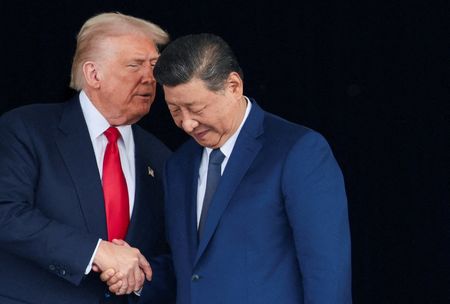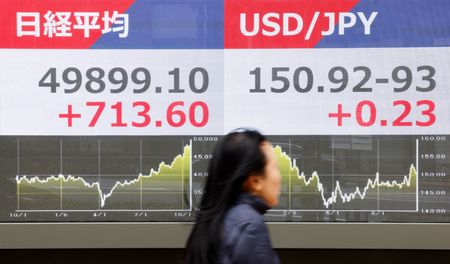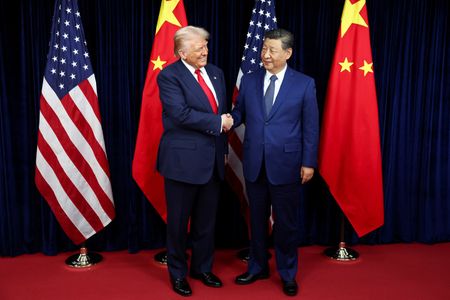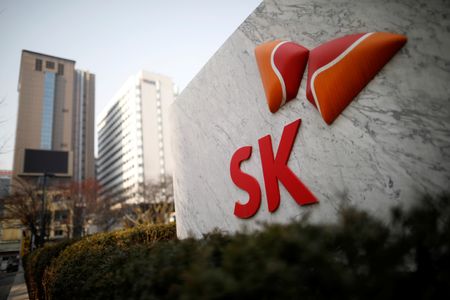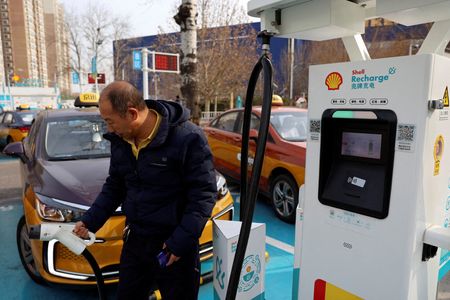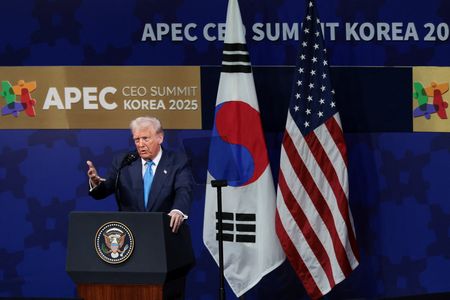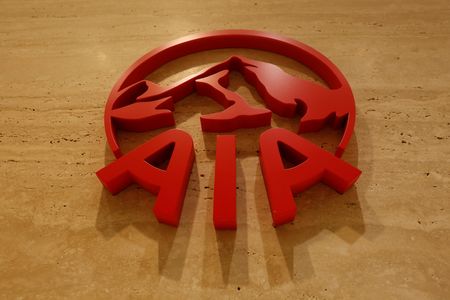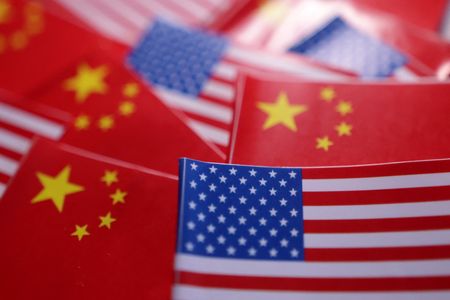By Rae Wee and Jiaxing Li
SINGAPORE/HONG KONG (Reuters) -China’s latest trade truce with the United States removes one big deterrent for foreign investors who’ve been circumspect all year about investing in a stock market that’s outrun most other major ones with its strongest annual run since 2019.
Foreign money managers have so far been both measured and selective participants in a rally that has pushed Chinese stocks to multi-year highs, fearful of pressures from deflation, weak consumption in the world’s second-largest economy and trade tensions.
Thursday’s deal between China and U.S. President Donald Trump removes one source of worry, to an extent.
The year-long truce is the longest the two feuding sides have had in a fractious relationship, and it reduces import tariffs on China, removes some controls on Chinese rare earths exports and allows Chinese firms to receive some U.S. technology.
Beyond those encouraging headlines, the specifics of the deal left markets unimpressed and analysts pointing to the breakthrough and commitment to cooperation as the best part of the truce.
“I don’t think this trade deal changes anything dramatically, but it helps move the needle on on encouraging offshore investment in China,” said Kristina Hooper, New York-based chief market strategist at the Man Group.
“There has been some concern among investors in areas like the U.S. that at some point if they were to invest in China, they would be forced to divest. So any warming of relations between the two countries is a form of encouragement to invest in China.”
Boosted by policy measures and Chinese artificial intelligence forays, its blue-chip stock index is up by a fifth this year, while the more accessible Hong Kong Hang Seng index is one of the world’s top performers this year with 31% gains, bigger than Nasdaq’s 23%.
But foreign money has played safe, staying in sectors around AI and China’s self-sufficiency initiatives while avoiding broad exposure. Foreigners have pulled $3.9 billion from offshore-listed China-dedicated equity funds so far this year, LSEG Lipper data showed.
Relative to its economic might, which is a fifth of world GDP, China is underowned. Data from financial services firm Morningstar showed large global funds on average had a 1.43% exposure to China at the end of September.
Cusson Leung, chief investment officer at Hong Kong-based wealth manager KGI, finds the signs of easing in Sino-U.S. tensions positive.
“I’ll continue building up China positions with today’s dip,” said Leung. But it’s less about the trade talks and more a bet on China’s economic recovery, he said.
COMPETITION PLUS COOPERATION
For investors, there’s ostensibly opportunity even if the two trade rivals compete fiercely while cooperating a bit.
“On both sides, they still have the mindset to strengthen the security of their own supply chains, and this brings opportunities for their domestic players in different sectors,” said Chaoping Zhu, global market strategist at JP Morgan Asset Management in Shanghai, referring to U.S. quest to find alternate sources of rare earths and China’s push for technological prowess.
“Maybe the competition will continue and at the same time, some kind of cooperation, and investors have already priced in this scenario. I think the chance for upside might be a little larger than the chance for downside.”
Analysts at BNP Paribas and Goldman Sachs expect strong domestic drivers to push Chinese stocks higher.
In a note published last week, Goldman said it expects policy, growth, valuations and money flows to push the mainland and Hong Kong indexes up roughly 30% by the end of 2027.
There are stubborn “China Discounts” to peer markets in the valuations, suggesting “investors aren’t overpaying for the right tail from further AI optimism and liquidity overshoot in China,” they said.
“The combination of easing Fed policy and a weaker dollar may incentivize global funds to revisit their China investment case, and to repair their persistent underweight allocations to Chinese stocks.”
Still, no one’s ready to call an end to the trade war, and investors are advised caution.
“There’s a not a lot of positivity getting priced in, as investors are still sceptical as to how long this unstable equilibrium sustains,” said Devesh Divya, FX strategist at Standard Chartered in Singapore.
Uncertainty had reduced but it was still a very difficult environment for corporates and multinationals looking to expand or invest, he said.
(Additional reporting by Gaurav Dogra and Patturaja Murugaboopathy in Bengaluru, Ankur Banerjee in SingaporeWriting by Vidya Ranganathan; Editing by Anna Driver)

